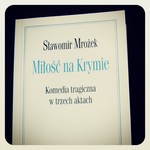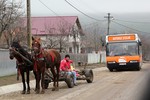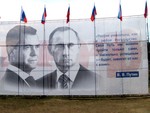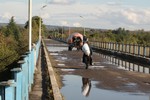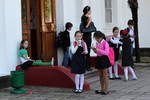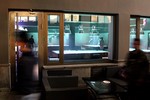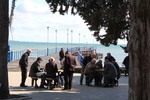Amore in Crimea
I timori per quanto sta accadendo in Ucraina erano stati anticipati da vari studiosi. Ma cosa ha fatto l’Unione europea per limitare la crisi? E che cosa potrebbero fare le istituzioni europee per evitare che i cittadini ucraini perdano la fiducia nell’Europa? Un’analisi
Who left the children out of the Agreements
The Association Agreements recently signed by Moldova and Georgia are not identical. There may be very good reasons for the differences, but some are more difficult to explain than other, as emerges from a closer look at the documents actually signed in Vilnius
Romania, the importance of the after-school programs
Despite the declarations of Prime Minister Victor Ponta, the after-school service in Romania still lacks adequate support from the State.
Moscow's approach towards de facto states after Kosovo's recognition
Kosovo’s declaration of independence in February 2008 marked a change in Russia’s approach towards Abkhazia and South Ossetia in the months preceding the war in Georgia in August 2008. Five years later, a short journey through this change in Moscow’s official rhetoric
ICG’s report on Abkhazia, some notes on the footnotes
ICG’s latest report on Abkhazia is timely and its recommendations show the way forward. As usual, it provides a wealth of information and details. Yet, it is not without imprecisions
In Abkhazia, worried about the language law
The law “On the state language”, approved by the authorities in Sukhumi in 2007, risks exacerbating inter-ethnic relations in Abkhazia, a territory that remains largely multi-ethnic, even after the ethnic cleansing that happened during the war. Our correspondent went to Abkhazia to find out more about it. A feature story
Gendercide in the South Caucasus
“A boy is OK, a girl is not”. In the Southern Caucasus, male newborns outnumber females by more than 10%. Experts have no doubt that the cause lies in the practice of selective abortions, an already-known phenomenon in China and India. This clearly shows how gender inequality is still highly present in the region
Abkhazia’s Armenians, multilingualism is the future
At home they speak Hamshen, a variety of western Armenian. At school, they study eastern Armenian, as spoken in Yerevan. According to Sukhumi authorities, they will need to speak Abkhaz within a few years. Most of them, though, prefer to just speak Russian. An interview with Suren Kerselian, former president of the Armenian community in Abkhazia
